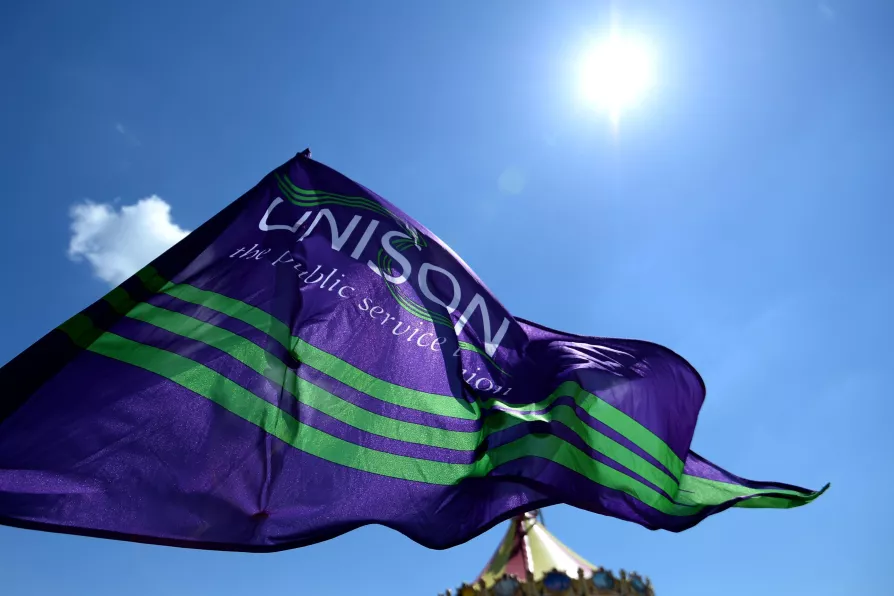From London’s holly-sellers to Engels’s flaming Christmas centrepiece, the plum pudding was more than festive fare in Victorian Britain, says KEITH FLETT
With violence against women and girls reaching unprecedented levels – particularly in the north of England – Unison North West is driving a union-wide push for education, prevention and trauma-informed support, writes JOANNE MOORCROFT


AS UNISON North West regional convener, in a union of over a million women members, tackling violence against women and girls is an absolute priority for me.
This is particularly due to the unprecedented rise in misogyny and violence against women and girls (VAWG) not only in Britain and globally but in particular in my region, as this area of Britain has one of the highest levels of child sexual exploitation and violence.
Women are not just more likely to be exploited in the workplace, but are also at greater risk of harassment and both physical and sexual violence and all for just doing their jobs.
In the year 2022/23 20 per cent of all crimes reported in England and Wales were related to violence against women and girls, and in the 12 months from July 23 a staggering 3,000 crimes of VAWG were reported each day, and that doesn’t take into account all those unreported incidents that we all know contribute to an even uglier landscape.
On March 8 Jess Phillips MP read out the names of 95 women who had been killed by men in the femicide census for the previous 12 months, a stark reminder of why the government has committed to reducing VAWG by half during their first term — something that our union welcomes.
With Unison members covering support services such as social workers, care workers, school staff and blue-light workers, they are dealing with the impact every day and, sadly, as a union of over a million women, many will not only be there in a supporting role, many will also be victims.
So, whether as those experiencing or responding to VAWG — for trade unions, for workers, for employers, the impact of this epidemic is absolutely a workplace issue, a political issue and most definitely a trade union issue.
We need education, understanding, prevention work and partnership approaches to dealing with the issue.
We need to move away from victim-blaming. We must have needs-led trauma-informed care which focuses on survivors. We need integrated commissioning of services for family safeguarding, and effective ways of dealing with perpetrators.
Investment in managing the issue — particularly in northern England, where this year’s Women of the North report demonstrates that gendered crime disproportionately affects women living in the north of England — north-east, north-west and Yorkshire and Humberside.
In these areas risks to women are apparent but for children involved, abuse starts from conception, with an increase in miscarriage, low birth rates and neonatal deaths. And finally, a far greater danger of embedding harmful gender norms.
VAWG is deeply linked to women’s inequality in society, it hinders progress towards gender equality. It is disproportionately experienced by women who face other forms of inequality — such as race, social class, ethnicity, disability, age etc.
Those more likely to experience VAWG are less likely to access justice and support — it is an equality issue.
These issues are often difficult to discuss, support, challenge and represent and take their toll not just on survivors but also on those who support them. Unison North West Region took a motion to our national delegate conference calling on Unison to set tackling VAWG as a national priority — the motion was supported unanimously.
As a result, we talked to our TUC colleagues and started commissioning training for members, branches, committees and wider rollout, with both accredited and unaccredited formal learning to keep our reps, safe and informed. Our offer includes general awareness courses, organising against VAWG, a two-day summer school — on women, violence and the far right, looking at the roots of violence — a two-day accredited tackling domestic violence course — a workplace issue and a three-day TUC-commissioned health checks for union reps course.
We are working with media students on foundation courses to work with us on messaging for younger people. We identified a need for policy change that’s wholesale, with joint working on tackling VAWG.
We wrote a strategy and developed a charter for employers to sign and work with us on, bearing in mind that many of our own branches employ staff too, it starts with us.
Both of these are being launched today, November 25, the UN International Day for the Elimination of Violence Against Women.
Until now, these issues felt almost impossible to address but slowly, things are falling into place. Something has changed — look at the femicide census, look at the Women of the North report, look at the news. The issues are there and needing large scale redress. It is impossible to ignore any longer.
Look at song lyrics that encourage violence, abuse and death of women, look at what our children are consuming visually and virtually, look at what our members are enduring.
Every woman matters, particularly the lives of the 350 who have tragically died at the hands of men since Sarah Everard’s murder in 2021 and statistics show that the problem is getting worse.
As a society, as a movement we need to work together, making the changes that are so desperately needed to end violence against women and girls.










